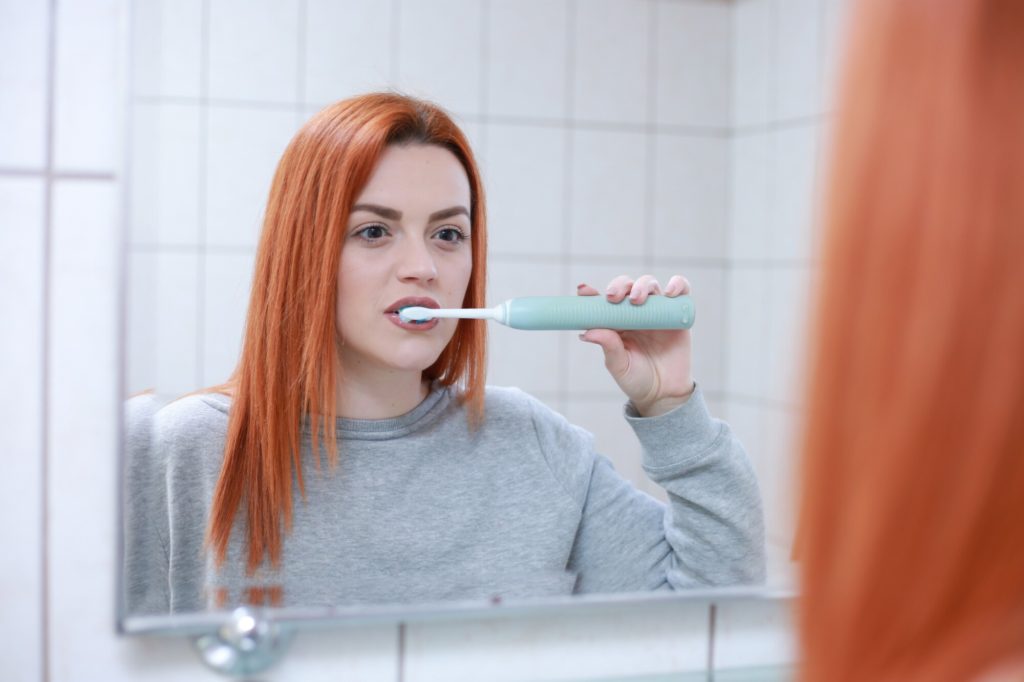
According to a study, nearly 95% of Americans see their oral health as an essential aspect of their overall well-being. Despite this collective attitude, more than one-third of Americans do not floss their teeth daily.
What does this mean for dental hygiene? There is a growing need to establish good dental habits that will help prevent gum disease and cavities.
Fortunately, making the best dental routine possible is not overwhelming or complicated. Here are seven tips on how you can build your best dental routine ever:
1. Schedule Regular Dental Checkups
One of the best ways to maintain good oral health is by having regular dental check-ups. Dentists can catch any potential problems early on, which will make them easier and less expensive to treat.
A dentist will check your mouth for plaque, tartar, cavities, and gum disease. If they find any issues, they can talk to you about treatment options and suggest ways that you might be able to reduce your risk of getting future problems.
It’s good to go for a check-up every six months, but if you have a history of gum disease or cavities, it’s best to check in more often.
During your appointment, take the opportunity to ask questions and get information about how you can improve your dental routine at home.
2. Brush Your Teeth Twice a Day
One of the essential steps in maintaining good oral health is brushing your teeth twice a day. Brushing removes plaque and bacteria from your teeth, which can help prevent gum disease and cavities.
It’s best to use a toothbrush with soft bristles and fluoride toothpaste. Be sure to brush on all surfaces of your teeth, including the chewing surfaces and inside surfaces of your molars.
Brush for two minutes at least — you might want to time yourself to make sure you’re hitting the mark.
If you’re not able to brush your teeth twice a day, try to at least brush before bed. This will help remove plaque and bacteria that might have built up during the day.
3. Floss Daily
While brushing your teeth is an essential part of good dental hygiene, it can’t remove plaque or bacteria from between your teeth.
Flossing daily helps you get rid of food particles and plaque accumulated in hard-to-reach places. These areas are prime areas for cavity-causing bacteria, so removing them will help keep your smile healthy.
If flossing normally feels tedious or uncomfortable, try using a water pick with soft tips on the ends instead. Water picks deliver a pulsating stream of water to clean each side of every tooth while also stimulating gums and delivering fluoride into the deepest layers where it’s needed most — all at once!
There are many brands on the market today but be sure to choose one with soft tips on the ends.
4. Limit Sugars and Starches
Eating and drinking foods that are high in sugar can cause cavities. Sugary or starchy snacks — like candy, cookies, cake, cereal bars, ice cream, and soda — contain carbohydrates that bacteria in your mouth feed on to produce acids.
When the bacteria eat these carbs, they make acid as a byproduct. The acid destroys tooth enamel and leads to cavities over time.
Limiting sugary or starchy snacks will help you avoid this damaging buildup of plaque and harmful acids in your mouth.
Try low-sugar options such as fresh fruit, vegetables, and water instead. If you can’t resist sugary snacks altogether, try to have them only once in a while and brush your teeth afterward.
5. Clean the Tongue
Your tongue can also play a role in your oral health. The tongue’s surface is covered in bacteria, and if left unchecked, these bacteria can cause bad breath and gum disease.
To keep your mouth healthy, use a toothbrush or tongue scraper to clean the surface of your tongue once a day. Be sure to reach to the back of your tongue — this is where most of the bacteria live.
6. Rinse With Mouthwash
Mouthwash can also help keep your mouth healthy. Some brands contain antibacterial and antiseptic ingredients that kill plaque and bacteria, while others work to freshen breath.
Fluoride mouthwash can also strengthen tooth enamel and reduce cavity-causing bacteria.
Be sure to read the ingredients list before purchasing a mouthwash to ensure it contains what you’re looking for. Look for brands that contain fluoride, antibacterial and antiseptic agents, and breath-freshening ingredients.
If you have braces or another type of dental appliance, ask your dentist if there are specific types of mouthwash you should use to avoid interfering with the appliance’s fit.
7. Cut the Tobacco
Smoking is terrible for your oral health. Not only can it lead to gum disease, but smokers are also more likely to develop cancer of the mouth and throat than non-smokers.
If you smoke, quitting is the best thing you can do for your oral health. Quitting not only improves your overall health but also helps reduce bad breath and plaque buildup.
Many resources are available to help you quit smoking, including counseling, prescription medications, and support groups. Talk to your doctor or dentist about what might work best for you.
8. Drink More Water
Drinking water is good for your overall health, and it’s especially important to maintain healthy teeth.
Your saliva naturally contains fluoride that can strengthen tooth enamel over time. However, the longer you go without producing any saliva — which happens when you’re dehydrated — the less fluoride your mouth gets. Drinking more water ensures there will always be enough of this beneficial substance in your mouth.
If plain tap or bottled water tastes flat or “off” to you, try adding a slice of lemon or lime instead! This helps enhance the mild flavor while also delivering extra fluoride into your body.
Let’s Us Help You Build a Dental Routine
Building a good dental routine is vital for keeping your teeth and gums healthy throughout your life. By following these tips, you can establish good habits that will help reduce the risk of gum disease and cavities. Be sure to talk to your dentist if you have any questions about how to best care for your oral health.
Are you looking for a qualified dentist who can help you maintain good oral health? Look no further than Katy Gentle Dentists! Our team of experienced caregivers is dedicated to providing quality dental services and education to our patients.
Contact us today to schedule your appointment!

